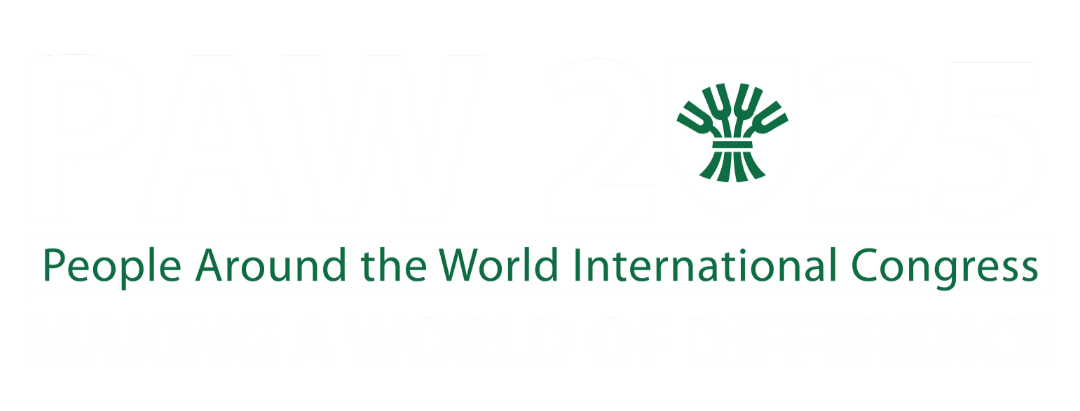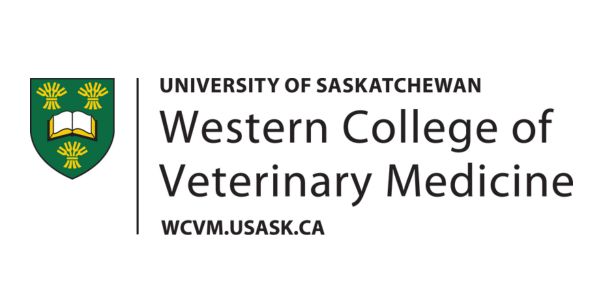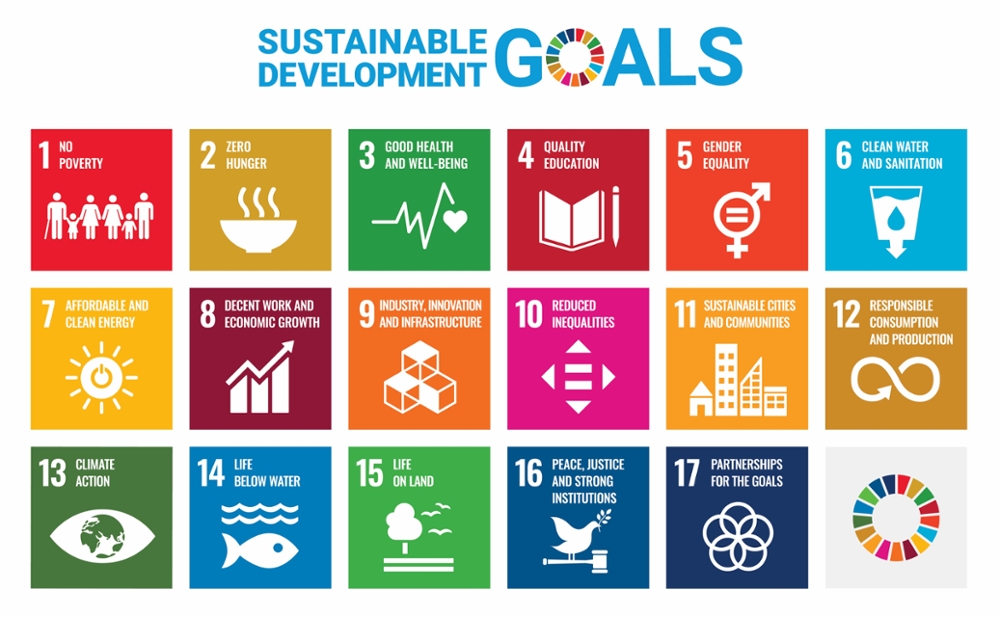About PAW 2025
PAW 2025 is bringing together local and international experts in health, environmental sciences, sustainability, food, energy and water, digital technologies and the social sciences to explore creative and accessible solutions to support planetary health.
The Congress theme of Healthy people, healthy planet: Driving innovation with data will examine the benefits of shared perspectives, highlighting solutions to support local and global communities guided by data-driven insights and innovative technologies.
This exciting Congress will offer an action-packed three days including keynotes, panels, student poster sessions, tours and more from leading institutions and experts around the world. Our invited speakers include local, national and international experts whose topics may include: science diplomacy, policy and funding, integrated data for public and population health research, transforming Canadian health care, viral pandemics, rural and remote communities, holistic health, climate and human health, sustainability and more!
PAW 2025 will:
- highlight cutting-edge technologies and strategies.
- share valuable insights and practical solutions.
- promote collaboration with a diverse network of experts from industry, government, education institutions and community organizations.
- enhance informed decision-making and impactful policy development.
- inspire action to improve health outcomes and social impacts in the context of a healthy planet to support thriving local and global communities.
From policymakers, researchers and artists, to entrepreneurs, students, scientists and the general public—PAW 2025 will be a dynamic place to exchange ideas, strategies and collaborative efforts focused on re-examining the solutions required to address the Decade of Action and advance the 17 Sustainable Development Goals (SDGs).
Stay up to date by joining the PAW mailing list
Subscribe for the latest details about PAW 2025, including early-bird registration dates, speaker information and more!
Congress Program
As part of your PAW 2025 International Congress Registration a number of optional tours will be avaliable to you free of charge on Wednesday October 22, 2025.
Pre-registration is required. Additional details, including tour schedules and registration instructions will be provided to all Congress participants as the event date approaches via the email provided during registration.
| Start Time | End Time | Activity | Location |
| 7:45am | 8:45am | Registration; Light Breakfast and Networking | Garry Room, Marquis Hall |
| 8:45am | 10:00am | Day One Opening Remarks | Garry Room, Marquis Hall |
| 10:00am | 10:45am |
Opening Keynote Speaker: Dr. Timothy Caulfield Title: The Knowledge Crisis Summary: The spread of misinformation seems to intensify with each passing week. Indeed, it is a defining characteristic of our time! We are in the middle of a knowledge crisis, and it is doing tangible harm – to public health, mental health, public discourse, personal relationships, and public trust. How did we get here, why do people believe and what can we do about it? In this provocative presentation Professor Caulfield will explore what the most recent evidence tells us about the nature and source of the current infodemic. He will also provide science-informed recommendations to cut through the noise and forge a healthy path forward. |
Garry Room, Marquis Hall |
| 10:45am | 11:00am | Break / Movement | Garry Room, Marquis Hall |
| 11:00am | 12:30pm |
Concurrent Sessions: AI for Health and Health for AI Summary: Artificial Intelligence (AI) is changing the way we think about health and healthcare. From helping doctors detect diseases earlier to making hospital visits more efficient, AI is becoming a powerful tool in keeping people healthy. In this session, we’ll explore how AI is being used in everyday healthcare, what it means for patients and families, and how it could shape the future of medicine. This session is appropriate for all attendees, whether they’re curious about new technology or just want to understand how it might affect their care. Moderator:
Panelists:
How Healthy is the Air You Breathe at Home, School, Work and Play? Summary: Canadians spend over 90% of their time indoors, intaking 15,000 L (17kg) of air daily. While other inputs—like bottled water—indicate their contents and purity, the air we breathe is simply assumed to be clean. The COVID-19 pandemic increased the public’s awareness of the importance of indoor air quality, which is shown to have a significant impact on our health – with or without a pandemic. This session will address the factors that affect indoor air quality in various buildings and ways to improve indoor air quality during both normal operations and pandemics. Moderator:
Panelists:
Safeguarding the World Against Viral Pandemics Summary: In this session, we will learn about emerging viral epidemics and pandemics like avian influenza, discuss lessons learned from the COVID-19 pandemic, and the world’s vision to prevent future pandemics. Participating researchers are experts in the field with real-world experience in addressing epidemics and pandemics. Moderator:
Panelists:
|
Room Location in order listed: PMB 120, Convocation Hall AGRI 2C61, Agriculture Building Garry Room, Marquis Hall
|
| 12:30pm | 1:30pm | Lunch | Garry Room, Marquis Hall |
| 1:00pm | 2:30pm |
Student and Postdoctoral Fellows Poster Session During the poster session, we invite congress attendees to select their top student poster based on the overall quality of the posters. Voting will take place through the Congress app. When making the selection, it is important to consider factors such as content clarity, visual design, innovation, relevance to the topic and graphic presentation skills. There will also be voting for a People’s Choice Award available to congress attendees and the public. This will be available to those who visit the poster session in person. |
Upper Place Riel |
| 2:30pm | 2:45pm | Break | Garry Room, Marquis Hall |
| 2:45pm | 3:00pm |
Launching the Global Health Watch 7: Mobilizing for Health Justice Since its first edition in 2005, Global Health Watch (GHW) – the flagship publication of the People’s Health Movement (PHM) – has been critically reporting on the state of the world’s health. Published every three or four years, it comments on developments in global health while focusing on continuities with popular health struggles. The launch of this new edition delves into the existential risks facing people and planetary health, while describing the efforts of health activists globally to promote a political economy based on health justice. |
Garry Room, Marquis Hall |
| 3:00pm | 4:30pm |
Plenary Panel: Building Bridges for Health Through Science Diplomacy Summary: Addressing humanity’s greatest challenges requires cooperation at both regional and global scales. Effective partnerships between researchers, governments, policy makers and diplomats can build trust between nations through the universal language of science and research. This session will bring together multinational and multidisciplinary experts to explore how innovative frameworks and evidence-based approaches can support health literacy, common understanding and hard science, delivering actionable policies in each society’s context. Experts will also discuss the necessary nuances that social and behavioural sciences can bring to the table to build a healthy consensus while respecting national sovereignty. Moderator:
Panelists:
|
Garry Room, Marquis Hall |
| 4:30pm | 6:00pm | Break | |
| 6:00pm | 8:30pm |
Congress Reception Congress Reception Speaker: Steven Heidel Title: AI for Scientific Discovery Summary: In this talk Steven will tell the story of ChatGPT's development, giving you a front-row seat to the explosive growth of Artificial Intelligence over the past three years. He'll then share how AI is being used today to accelerate scientific discovery in mathematics, science and health. |
Western Development Museum |
All times are CST. Program subject to change.
| Start Time | End Time | Activity | Location |
| 7:45am | 8:45am | Registration; Light Breakfast and Networking | Garry Room, Marquis Hall |
| 8:45am | 9:00am | Welcome and Short Presentations from Top Three Posters from the Student and Postdoctoral Fellows Poster Session | Garry Room, Marquis Hall |
| 9:00am | 10:30am |
Plenary Panel: Integrated Data for Public and Population Health Research Summary: The data infrastructure necessary to grow a public and population health systems and services research agenda has fallen behind that of the rest of the health system. This panel will discuss progress being made to fill gaps in data infrastructure and build expertise among trainees and researchers in partnership with providers and community partners in the field of population and public health. Prioritizing this need has the potential to impact healthcare sustainability, strengthen public health and improve health and wellness. Moderator:
Panelists:
|
Garry Room, Marquis Hall |
| 10:30am | 11:00am | Break / Movement | Garry Room, Marquis Hall |
| 11:00am | 12:15pm |
Concurrent Sessions: Healthy Communities in Rural and Remote Areas – Challenges and Opportunities Summary: What are the necessary public health infrastructures and human resources for promoting community wellbeing? What is required to deliver appropriate and timely healthcare services in rural and remote communities? What are some opportunities and barriers for engaging non-human health, as part of creating wellbeing for healthy communities? Moderator:
Panelists:
Poly-Solutions – A Response to Global Health Poly-Crises Summary: This session will consider both sides of a ‘poly-crisis’—the multiple intersecting problems and solutions—to tackle complex problems locally, regionally, nationally and globally. To illustrate the poly-crisis-poly-solutions nexus and to explore multi-level scenarios, various examples will be shared including in areas such as climate change and health. Moderator:
Panelists:
The Role of the Arts: Healthy Citizens and Healthy Communities Summary: There is growing evidence that “Arts for Health” initiatives offer biopsychosocial benefits for diverse populations, leading to the expansion of programs that integrate arts and health services to enhance community wellbeing. However, this contrasts data showing high rates of musculoskeletal and mental health issues among artists themselves, forcing us to ask: How can arts such as music be so good for someone’s health and make artists sick? We will reflect on how narratives (cultural/institutional) shape our conception of “healthy art(ists)” and consider the social role of artists as active citizens of healthy communities. This panel will explore recent research to show that arts-led perspectives can offer transformative insights for sustainable health across sectors. Moderator:
Panelists:
|
Room Location in order listed: HLTH 1130, Health Sciences Building, E-Wing Garry Room, Marquis Hall PMB 120, Convocation Hall |
| 12:15pm | 1:15pm | Lunch | Garry Room, Marquis Hall |
| 1:15pm | 2:45pm |
Plenary Panel: Transforming Healthcare - A Future Reimagined Summary: Healthcare systems face many challenges and require urgent governance reform to address workforce shortages, data accessibility, transparency and improved system administration. New innovations, along with an empowered workforce which can move successful models to scale, are required to improve health outcomes. This panel will explore how we can think and act differently to modernize the healthcare system. Whether it’s meeting the supply and demand for health services, decreasing costs, providing equitable access, or integrating competition, experts will weigh in on how an innovative and collaborative research ecosystem can drive solutions and contribute to the long-term of health of Canadians and the Canadian economy. Moderator:
Panelists:
|
Garry Room, Marquis Hall |
| 2:45pm | 3:45pm |
Closing Keynote Speaker: André Picard Title: The Human Touch: Ensuring the patient isn't forgotten in technological innovation Summary: Rapid developments in technology like AI, deep learning, robotics and more could revolutionize healthcare delivery. But how do we ensure that people (the patient, the care provider, and more) and the planet remain at the centre of the equation? A veteran journalist reflects on the dilemma. |
Garry Room, Marquis Hall |
| 3:45pm | 4:00pm | Congress Closing | Garry Room, Marquis Hall |
All times are CST. Program subject to change.
Join us on Monday October 20, 2025 and Tuesday, October 21, 2025, for a series of Pre-PAW Congress events designed to connect and engage our community in the days leading up to the PAW Congress.
2025 Pre-PAW Congress Workshops: Partnering with the Czech Republic, Germany and France
Join us on Monday October 20, 2025 and Tuesday, October 21, 2025, for four exciting workshops offered as part of the 2025 Pre-PAW Congress programming, designed to connect faculty, students, and staff through global opportunities in research and education. These workshops are free and open to all. Due to a limited number of spots, please register in advance to secure your place. See more details on each of these workshops and links to register at the bottom of this section.
Mozambique-Canada (USask) Partnerships for Sexual and Reproductive Health and Wellbeing
Date: Monday, October 20, 2025
Time: 3:00 PM – 5:00 PM
Location: ARTS 208, Arts Building, University of Saskatchewan Main Campus
This Pre-PAW Congress symposium focuses on the Mozambique-Canada (USask) Maternal Health and Sexual and Reproductive Health for Young Women projects in Inhambane, Mozambique. Using a modified World café format, the project team will share what they have learned and challenges that they have encountered and ask participants to engage and share their experiences and lessons learned in similar development projects.
Registration is now closed.
If you have any questions on these five Pre-PAW Congress events, please email international.office@usask.ca.
Additional Details and Registration Links for the 2025 Pre-PAW Congress Workshops
1. Unlocking research collaboration with the Czech Republic: strengths, priorities and funding
Date: Monday, October 20, 2025
Time: 1:30 PM – 3:00 PM
Location: EDUC 2005, Education Building, University of Saskatchewan Main Campus
The USask International Office would like to invite faculty, students, staff and others interested to the 2025 Pre-PAW Congress workshop offered by the Consulate General of the Czech Republic in Toronto. This interactive workshop presented by representatives from the Czech Republic Consulate in Toronto, will offer valuable insight into research collaboration with the Czech Republic. The session will explore the strengths, priorities and funding opportunities available to collaborate with the Czech Republic, and highlight major research and infrastructure projects in the Czech Republic.
Participants will hear directly from Eva Libs Bartoňová, Head of Trade and Investment Section at the Consulate General of the Czech Republic in Toronto. She will share insights on how to explore international funding and research collaborations in the Czech Republic and will provide practical guidance for researchers at all stages. The presentations will be followed by an extended Q&A session to encourage dialogue and support the development of future partnerships.
Registration is now closed.
2. Funding Research in Germany
Date: Tuesday, October 21, 2025
Time: 10:00 AM – 12:00 PM
Location: PMB 120, Convocation Hall, University of Saskatchewan Main Campus
Hosted by USask’s International Office as part of the 2025 Pre-PAW Congress programming, this interactive workshop will offer valuable insight into the German research landscape, funding structures, and academic exchange opportunities for Canadian students, scholars, and institutions. The session will explore avenues for research and academic collaboration with Germany, and feature representatives from Germany’s two leading funding organizations: the German Academic Exchange Service (DAAD) and the German Research Foundation (DFG).
Participants will hear directly from Bettina Schuffert, Program Officer at the DFG Office North America in Washington, D.C., and John Paul Kleiner, Senior Manager, University Relations at the DAAD Information Centre in Toronto. Both speakers will share insights on how to explore international funding, research collaborations, and study opportunities with the Alexander von Humboldt Foundation and DFG in Germany and will provide practical guidance for researchers at all stages. The presentations will be followed by an extended Q&A session to encourage dialogue and support the development of future partnerships.
Registration is now closed.
3. Choose France for Research
Date: Tuesday, October 21, 2025
Time: 1:30 PM – 4:00 PM
Location: PMB 120 Convocation Hall, University of Saskatchewan Main Campus
The USask International Office would like to invite faculty, students, staff and others interested to the 2025 Pre-PAW Congress workshop, to learn about the research opportunities and priorities between Canada and France. This workshop will feature a keynote presentation by Dr. Géraldine Dantelle, Attaché for Science and Higher Education at the French Embassy in Canada, who will offer insights into the French research landscape and pathways for collaboration.
The workshop will feature presentations from both USask researchers and partner institutions in France and will include reflection on personal experiences working across borders and disciplines. The session will conclude with a panel discussion and an audience Q&A on how to engage innovatively to achieve common research goals and sustain the partnership.
Registration is now closed.
4. Study, Research and Internships in Germany for Students and Postdocs in the Natural Sciences and Engineering
Date: Tuesday, October 21, 2025
Time: 4:20 PM – 5:20 PM
Location: PMB 120 Convocation Hall, University of Saskatchewan Main Campus
Join DAAD – German Academic Exchange Service to learn more about funding opportunities for students (Undergrad and Grad) and postdocs in the Natural Sciences and Engineering interested in study, research and internships in Germany.
This session will provide details on both DAAD’s popular internship programs RISE Germany and RISE Professional each of which offers students from Canadian universities the chance to carry out research-related internships in Germany.
- DAAD will also give information on the following programs:
Research Grant programs for PhDs and Postdocs; - Fellowships with the German Aerospace Centres;
- Study Scholarship in support of Master’s studies in Germany;
- Fellowships in the field of Green Hydrogen research.
This session will be relevant to students at all stages of study (Bachelor, Master’s, PhD) as well as postdocs coming from programs related to all branches of the Natural Sciences and Engineering.
Come with your questions. All are welcome!
Registration is now closed.
The workshop agendas and room locations will be shared with attendees closer to the date.
Come discover what’s possible when research crosses borders!
Keynote Speakers and Panels
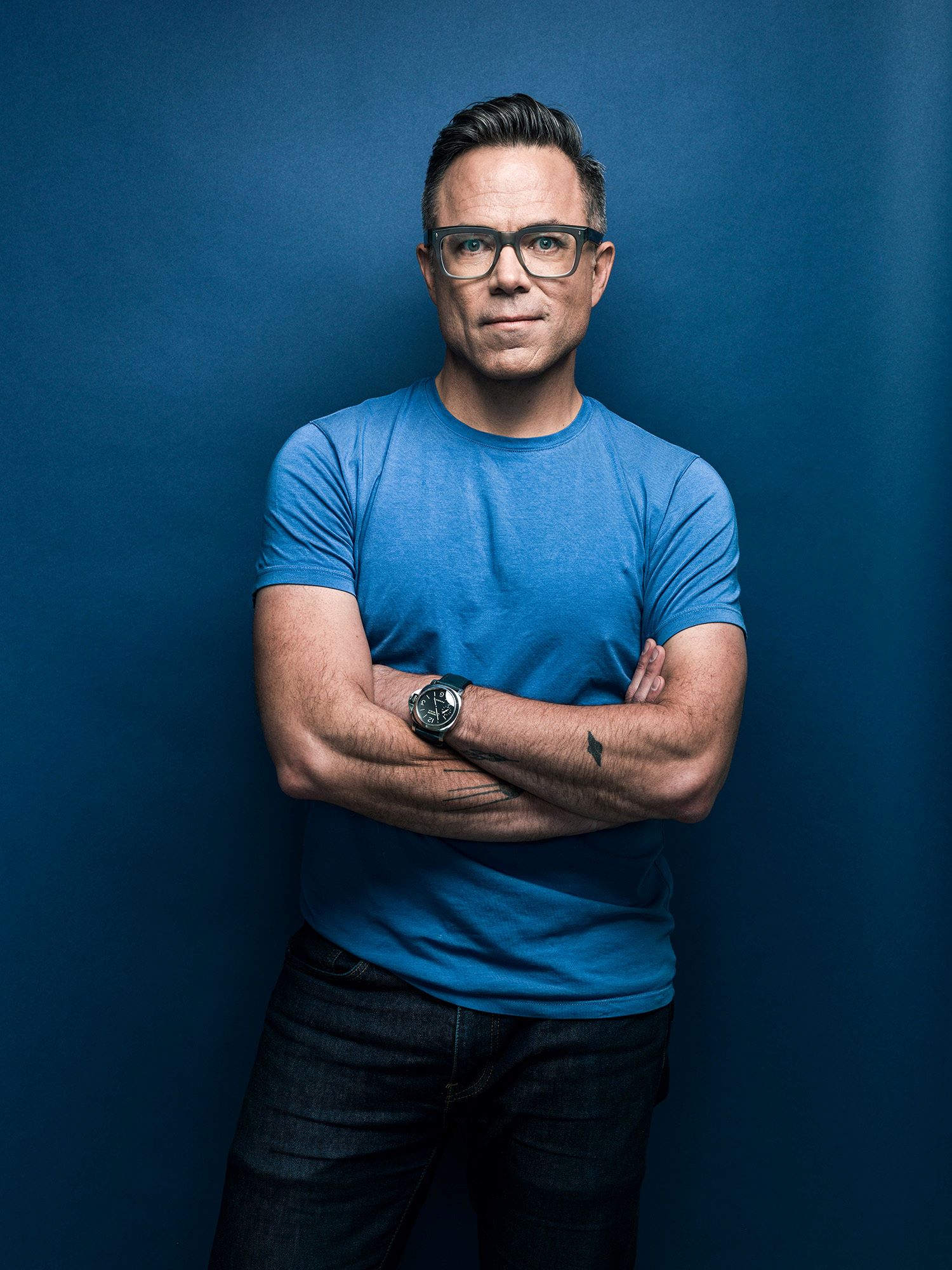 |
BIOGRAPHY:
Timothy Caulfield Professor of Health Law and Science Policy | Bestselling Author Professor Timothy Caulfield is an unrivalled communicator who debunks myths and assumptions about innovation in the health sector — from research on stem cells to diets and alternative medicine — for the benefit of the public and decision-makers. For over 20 years, he was the Canada Research Chair in Health Law and Policy and is currently a professor in the Faculty of Law and the School of Public Health and the Research Director of the Health Law Institute at the University of Alberta. |
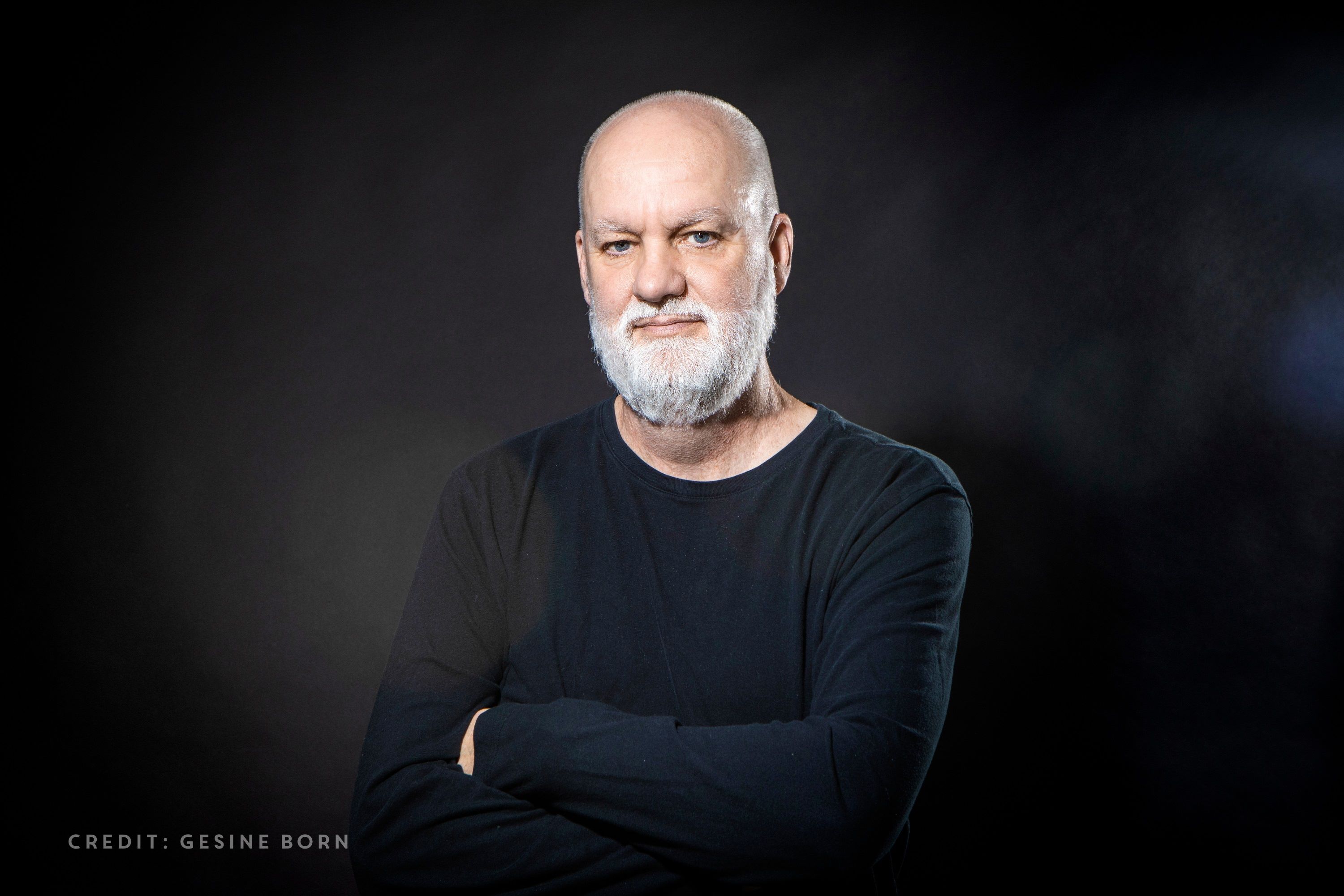 |
BIOGRAPHY:
André Picard Award-Winning National Health Writer and Author André Picard is one of Canada's top health and public policy observers and commentators. He has been part of The Globe and Mail team since 1987, where he is a health reporter and columnist. He is also the author of six bestselling books. André is an eight-time nominee for the National Newspaper Awards, Canada’s top journalism prize, where he has twice been named the country’s top newspaper columnist. He is past winner of the prestigious Michener Award for Meritorious Public Service Journalism, and the Centennial Prize of the Pan-American Health Organization, awarded to the top health reporter in the 17 countries of the Americas. André’s work has been recognized by a number of health advocacy groups. He was named Canada’s first “Public Health Hero” by the Canadian Public Health Association and a “Champion of Mental Health” by the Canadian Alliance on Mental Illness and Mental Health. He received the Queen Elizabeth II Diamond Jubilee Medal for his dedication to improving healthcare. In 2023, André was appointed to the Order of Canada for his lifelong dedication to advancing public health understanding and practices within the nation. A graduate of the University of Ottawa and Carleton University, André has received honorary doctorates from eight universities, including UBC and the University of Toronto. He is a seasoned communicator who employs a conversational style to reach his audience. Additionally, he enlivens his research and commentary with personal stories to provide context for his audience. Fluently bilingual, André will enlighten and pique a sense of curiosity of audience members from all educational backgrounds. Behind the placid exterior lies an inquisitive, perceptive and industrious scribe for whom the work only begins with the official story. |
SESSION DESCRIPTIONS, MODERATORS AND PANELISTS:
PAW 2025 will feature three engaging Plenary Panels with local, national and international experts.
Building Bridges for Health Through Science Diplomacy
Addressing humanity’s greatest challenges requires cooperation at both regional and global scales. Effective partnerships between researchers, governments, policy makers and diplomats can build trust between nations through the universal language of science and research. This session will bring together multinational and multidisciplinary experts to explore how innovative frameworks and evidence-based approaches can support health literacy, common understanding and hard science, delivering actionable policies in each society’s context. Experts will also discuss the necessary nuances that social and behavioural sciences can bring to the table to build a healthy consensus while respecting national sovereignty.
Moderator:
- Avery Vold, Vice-President, Academic Research Investment & Life Science Innovation, Innovation Saskatchewan – Government of Saskatchewan, Canada
Panelists:
- Dr. Connie McManus, Research Collaboration Manager (National and International), FAPESP / Emeritus Professor, University of Brasilia / Paschoal Senise Chair – University of São Paulo, Brazil
- Dr. Anita Melnyk, Director, Health and Life Sciences – Council of Canadian Academies, Canada
- Christian Strowa – Director of DAAD New York Office (USA, Canada) and DWIH New York – DAAD, Germany
Integrated Data for Public and Population Health Research
The data infrastructure necessary to grow a public and population health systems and services research agenda has fallen behind that of the rest of the health system. This panel will discuss progress being made to fill gaps in data infrastructure and build expertise among trainees and researchers in partnership with providers and community partners in the field of population and public health. Prioritizing this need has the potential to impact healthcare sustainability, strengthen public health and improve health and wellness.
Moderator:
- Dr. Cory Neudorf, Senior Medical Expert, Public Health Agency of Canada, and Professor, Department of Community Health and Epidemiology, College of Medicine – University of Saskatchewan, Canada
Panelists:
- Alyssa Daku, Chief Data Officer and Director General, Science, Data and Surveillance Enablement Directorate, Science and Policy Integration Branch, Public Health Agency of Canada – Government of Canada, Canada
- Dr. Kimberlyn McGrail, Associate Dean of Research, School of Medicine – Simon Fraser University, Canada
- Dr. Nathaniel Osgood – Director, Computational Epidemiology & Public Health Informatics Lab; Professor of Computer Science – University of Saskatchewan, Canada
Transforming Healthcare - A Future Reimagined
Healthcare systems face many challenges and require urgent governance reform to address workforce shortages, data accessibility, transparency and improved system administration. New innovations, along with an empowered workforce which can move successful models to scale, are required to improve health outcomes. This panel will explore how we can think and act differently to modernize the healthcare system. Whether it’s meeting the supply and demand for health services, decreasing costs, providing equitable access, or integrating competition, experts will weigh in on how an innovative and collaborative research ecosystem can drive solutions and contribute to the long-term of health of Canadians and the Canadian economy.
Moderator:
- Dr. Sarah Forgie, Dean, College of Medicine and Pediatric Infectious Disease Physician, Jim Pattison Children’s Hospital – University of Saskatchewan, Canada
Panelists:
- Ryan Cossitt, Assistant Deputy Minister, International Engagement, Ministry of Trade and Export Development – Government of Saskatchewan, Canada
- Ingrid Kirby, Assistant Deputy Minister, Ministry of Health – Government of Saskatchewan, Canada
- Mark Wyatt – Assistant Deputy Minister, Ministry of Advanced Education – Government of Saskatchewan, Canada
SESSION DESCRIPTIONS, MODERATORS AND PANELISTS:
PAW 2025 will feature two sets of enriching concurrent sessions for attendees to choose from.
Thursday October 23 choose from:
AI for Health and Health for AI
Artificial Intelligence (AI) is changing the way we think about health and healthcare. From helping doctors detect diseases earlier to making hospital visits more efficient, AI is becoming a powerful tool in keeping people healthy. In this session, we’ll explore how AI is being used in everyday healthcare, what it means for patients and families, and how it could shape the future of medicine. This session is appropriate for all attendees, whether they’re curious about new technology or just want to understand how it might affect their care.
Moderator:
- Dr. Daniel Fuller, Associate Professor, Department of Community Health and Epidemiology, College of Medicine – University of Saskatchewan, Canada
Panelists:
- Dr. Björn Krüger, Professor of Personalized Digital Health and Telemedicine – University of Bonn, Germany
- Dr. Stephen Lee, Associate Professor, College of Medicine – University of Saskatchewan, Canada
- Dr. Raymond Ng – Director, Data Science Institute / Co-Director, AI & Health Network – University of British Colombia, Canada
How Healthy is the Air You Breathe at Home, School, Work and Play?
Canadians spend over 90% of their time indoors, intaking 15,000 L (17kg) of air daily. While other inputs—like bottled water—indicate their contents and purity, the air we breathe is simply assumed to be clean. The COVID-19 pandemic increased the public’s awareness of the importance of indoor air quality, which is shown to have a significant impact on our health – with or without a pandemic. This session will address the factors that affect indoor air quality in various buildings and ways to improve indoor air quality during both normal operations and pandemics.
Moderator:
- Dr. Melanie Fauchoux, Research Associate, Department of Mechanical Engineering, College of Engineering – University of Saskatchewan, Canada
Panelists:
- Dr. Tara Kahan, Professor, Department of Chemistry, College of Arts and Science – University of Saskatchewan, Canada
- Dr. Jeffrey Siegel, Professor, Civil Engineering – University of Toronto, Canada
- Dr. Sonia Taamali – Research Engineer – University of Lille, France
Safeguarding the World Against Viral Pandemics
In this session, we will learn about emerging viral epidemics and pandemics like avian influenza, discuss lessons learned from the COVID-19 pandemic, and the world’s vision to prevent future pandemics. Participating researchers are experts in the field with real-world experience in addressing epidemics and pandemics.
Moderator:
- Dr. Arinjay Banerjee, Principal Scientist and Canada Research Chair, Vaccine and Infectious Disease Organization – University of Saskatchewan, Canada
Panelists:
- Dr. Anvita Bhargava, Project Manager, "One Health - Emerging Infectious Diseases" Graduate School – Paris Cité Université, France
- Dr. Volker Gerdts, Director and CEO, Vaccine and Infectious Disease Organization – University of Saskatchewan, Canada
- Dr. Matthew Miller – Director, Michael G. DeGroote Institute for Infectious Disease Research / Co-Director, Canadian Pandemic Preparedness Hub (CP2H) / Canada Research Chair in Viral Pandemics / Professor, Biochemistry and Biomedical Sciences – McMaster University, Canada
- Dr. Samira Mubareka – Associate Professor; CIHR-PHAC Applied Public Health Chair – Sunnybrook Research Institute and University of Toronto, Canada
Friday October 24 choose from:
Healthy Communities in Rural and Remote Areas – Challenges and Opportunities
What are the necessary public health infrastructures and human resources for promoting community wellbeing? What is required to deliver appropriate and timely healthcare services in rural and remote communities? What are some opportunities and barriers for engaging non-human health, as part of creating wellbeing for healthy communities?
Moderator:
- Dr. Marc-André Pigeon, Director, Canadian Centre for the Study of Co-operatives / Assistant Professor, Johnson Shoyama Graduate School of Public Policy – University of Saskatchewan, Canada
Panelists:
- Dr. James Irvine, Professor Emeritus, Department of Academic Family Medicine, College of Medicine – University of Saskatchewan, Canada
- Dr. Shelley Kirychuk, Professor and Director, Canadian Centre for Rural and Agricultural Health – University of Saskatchewan, Canada
- Dr. Jordan Woodsworth – Director, Northern Engagement and Community Outreach, Western College of Veterinary Medicine – University of Saskatchewan, Canada
Poly-Solutions – A Response to Global Health Poly-Crises
This session will consider both sides of a ‘poly-crisis’—the multiple intersecting problems and solutions—to tackle complex problems locally, regionally, nationally and globally. To illustrate the poly-crisis-poly-solutions nexus and to explore multi-level scenarios, various examples will be shared including in areas such as climate change and health.
Moderator:
- Dr. Nazeem Muhajarine, Distinguished Professor, Department of Community Health and Epidemiology, College of Medicine / Director, Saskatchewan Population Health and Evaluation Research Unit (SPHERU) – University of Saskatchewan, Canada
Panelists:
- Jessica Ferne, Director, Global Health Impact – CanWaCH (Canadian Partnership for Women and Children’s Health), Canada
- Dr. Ronald Labonté, Professor Emeritus, School of Epidemiology and Public Health – University of Ottawa, Canada
- Dr. Corinne Schuster-Wallace – Executive Director, Global Institute for Water Security – University of Saskatchewan, Canada
The Role of the Arts: Healthy Citizens and Healthy Communities
There is growing evidence that “Arts for Health” initiatives offer biopsychosocial benefits for diverse populations, leading to the expansion of programs that integrate arts and health services to enhance community wellbeing. However, this contrasts data showing high rates of musculoskeletal and mental health issues among artists themselves, forcing us to ask: How can arts such as music be so good for someone’s health and make artists sick? We will reflect on how narratives (cultural/institutional) shape our conception of “healthy art(ists)” and consider the social role of artists as active citizens of healthy communities. This panel will explore recent research to show that arts-led perspectives can offer transformative insights for sustainable health across sectors.
Moderator:
- Dr. Jennifer Lang, Director, Professor, Music Education / Director of Choral Activities / Vice-Dean Academic, College of Arts & Science – University of Saskatchewan, Canada
Panelists:
- Dr. Liliana Araujo, Assistant Professor, Applied Performance Sciences – McGill University, Canada
- Dr. Kyle Zavitz, Research Assistant – University of Toronto, Canada
Student and Postdoctoral Fellow Poster Competition
The PAW 2025 Student and Postdoctoral Fellow Poster Competition will take place during the PAW 2025 Congress on Thursday, October 23, 2025 from 1:00pm - 2:30pm.
The Student Poster Competition allows PAW 2025 to highlight and uplift student researchers conducting research related to the PAW 2025 Congress theme, Healthy people, healthy planet: Driving innovation with data. It is open to all students conducting research in areas related to health, environmental sciences, sustainability, food, energy and water, digital technologies and the social sciences to explore creative and accessible solutions to support planetary health.
Students are eligible if they are:
- USask student – Graduate or Undergraduate (degree-seeking, exchange, VRS, visiting, etc.) or PDFs
- Conducting research with a USask faculty member
- International Student registered for PAW 2025
- Can highlight their research is connected to one of the SDGs
During the Student Poster Competition congress attendees will be asked to vote for their top three posters. The winners will be announced and the top three will be asked to give a short verbal presentation on their poster the next morning to open the Congress. The top three posters will also receive the following:
- First place: prize valued at $200.00 CDN
- Second place: prize valued at $100.00 CDN
- Third place: prize valued at $50.00 CDN
For questions, please contact international.office@usask.ca.
Registration
For registration questions please contact international.office@usask.ca.
PAW 2025 Registration Refund Policy:
- 100% Refund: A full refund, minus administrative fees, will be provided for cancellations made up to 4 weeks prior to registration closing (October 10, 2025).
- 50% Refund: A 50% refund, minus administrative fees, will be provided for cancellations made between 4 weeks and 2 weeks prior to registration closing (October 10, 2025).
- No Refunds: No refunds will be issued for cancellations made within 2 weeks of registration closing (October 10, 2025).
- Administrative Fees: Administrative fees are non-refundable and cover costs associated with processing and handling the registration and cancellation.
- Cancellation Deadline: Cancellations must be made in writing and received within the applicable time frames to qualify for a refund. Please contact international.office@usask.ca to arrange a ticket refund.
- Refund Process: Refunds will be processed within 7 business days from the date of cancellation approval.
- Ticket Transfer: Tickets are always transferable to a different name. Please contact international.office@usask.ca to arrange a ticket transfer.
As part of your PAW 2025 International Congress Registration a number of optional tours will be avaliable to you free of charge on Wednesday October 22, 2025.
Pre-registration is required. Additional details, including tour schedules and registration instructions will be provided to all Congress participants as the event date approaches via the email provided during registration.
If you have any questions, please contact international.office@usask.ca.
2025 Pre-PAW Congress Workshops: Partnering with the Czech Republic, Germany and France
Join us on Monday October 20, 2025 and Tuesday, October 21, 2025, for exciting workshops offered as part of the 2025 Pre-PAW Congress programming, designed to connect faculty, students, staff and others through global opportunities in research and education. These workshops are free and open to all. Due to a limited number of spots, please register in advance to secure your place. For further session details please see the Congress Program section.
Registration is now closed for the Pre-PAW Congress Workshops. For questions, please contact international.office@usask.ca.
FAQs
PAW 2025 will take place October 22-24, 2025 on the University of Saskatchewan (USask) main campus located in Saskatoon, SK. An evening reception will take place at a location within the city. Please see Congress Program for more details.
All conference registration details will be outlined under the 'Registration' tab.
Registration will open May 27, 2025.
Once open, reigstration may be completed by following the link under the 'Registration' tab.
Additional tickets for the evening reception may be available depending on final numbers. If you are interested in additional tickets please email international.office@usask.ca.
A virtual option will not be available for PAW 2025.
Thank you to our sponsors!
Platinum Sponsors
 |
Gold Sponsors
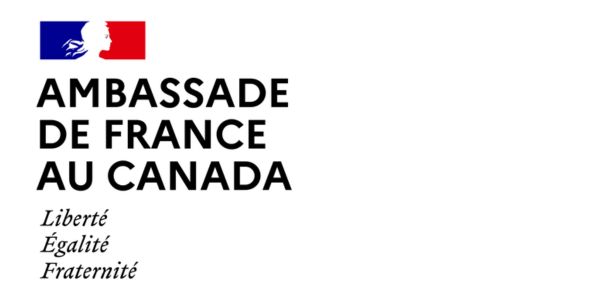 |
Silver Sponsors
|
|
|
|
Bronze Sponsors
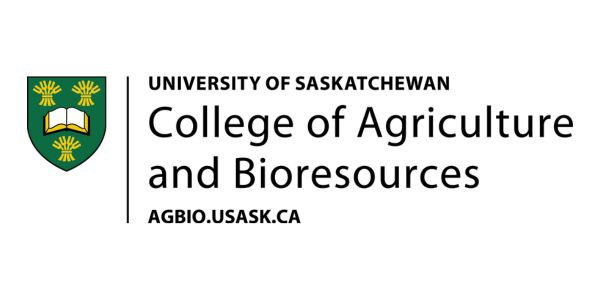 |
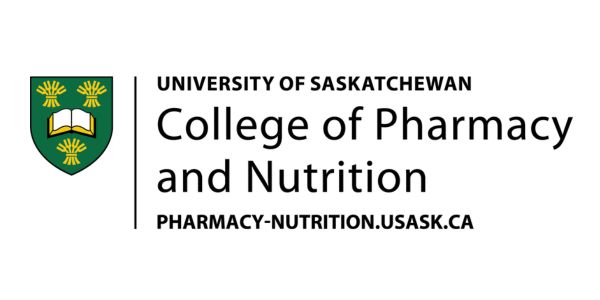 |
Student Prize Sponsor
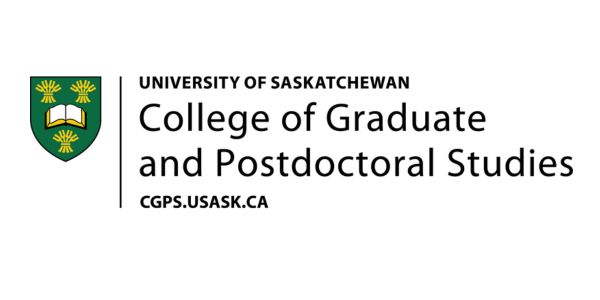 |
Sponsorship
Sponsor the PAW 2025 International Congress in Saskatoon, October 22-24, 2025! Align your brand with this year's theme, connect with global experts, and drive meaningful change. Join us in making a world of difference.
Please contact international.office@usask.ca if you are interested in becoming an official sponsor of PAW 2025.
Congress Resources
The Sustainable Development Goals (SDGs) are a call for action by all countries — poor, rich and middle-income — to promote prosperity while protecting the planet. They recognize that ending poverty must go hand-in-hand with strategies that build economic growth and address a range of social needs including education, health, social protection, and job opportunities, while tackling climate change and environmental protection.
Our University Plan 2025 commits us to be “The University the World Needs”. This means harnessing our talents and resources to respond to contemporary challenges and opportunities. The Critical Path to Sustainability strategy lays out an ambitious set of five goals and 17 actions that responds to these challenges and opportunities. We commit to achieving them by 2030, aligning with the Agenda Sustainable Development Goals.

